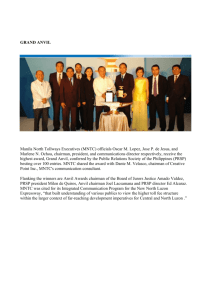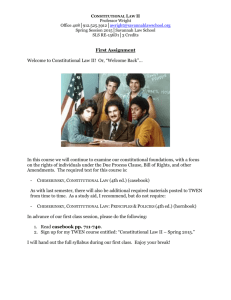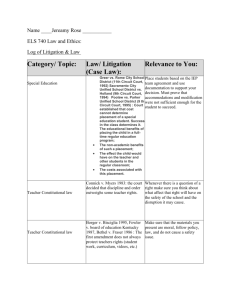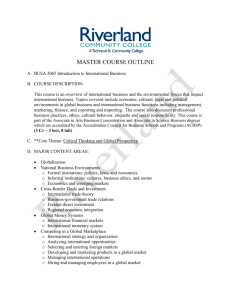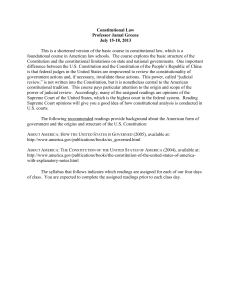Pols 2254 Constitutional Law: The Evolution of the Constitution from
advertisement
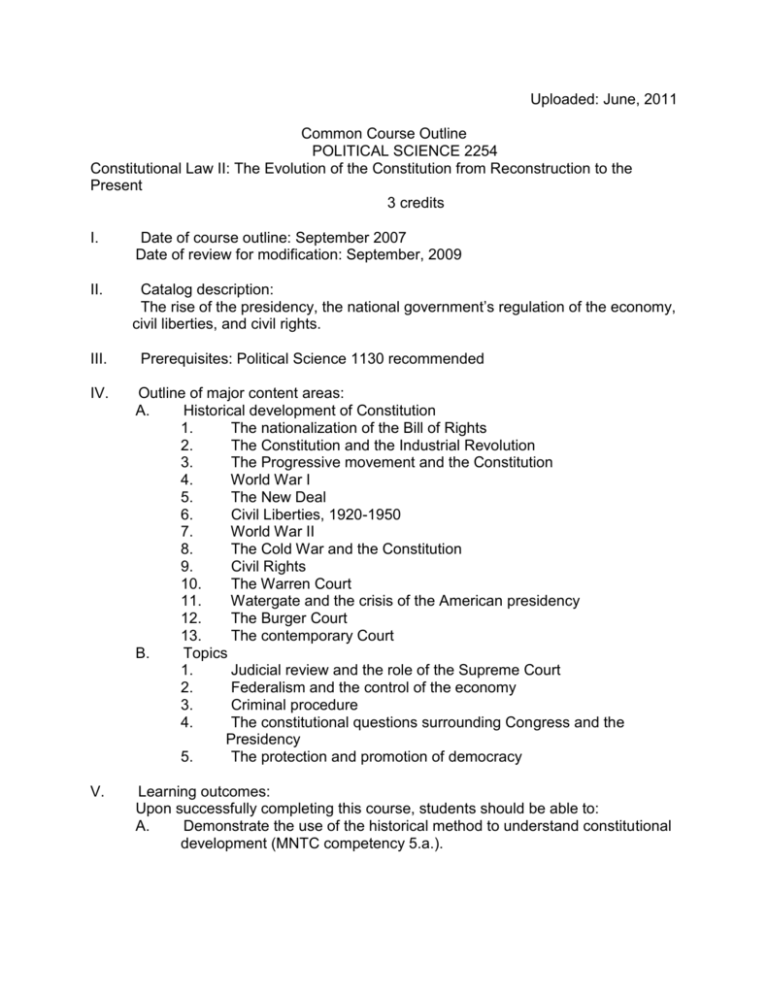
Uploaded: June, 2011 Common Course Outline POLITICAL SCIENCE 2254 Constitutional Law II: The Evolution of the Constitution from Reconstruction to the Present 3 credits I. Date of course outline: September 2007 Date of review for modification: September, 2009 II. Catalog description: The rise of the presidency, the national government’s regulation of the economy, civil liberties, and civil rights. III. Prerequisites: Political Science 1130 recommended IV. Outline of major content areas: A. Historical development of Constitution 1. The nationalization of the Bill of Rights 2. The Constitution and the Industrial Revolution 3. The Progressive movement and the Constitution 4. World War I 5. The New Deal 6. Civil Liberties, 1920-1950 7. World War II 8. The Cold War and the Constitution 9. Civil Rights 10. The Warren Court 11. Watergate and the crisis of the American presidency 12. The Burger Court 13. The contemporary Court B. Topics 1. Judicial review and the role of the Supreme Court 2. Federalism and the control of the economy 3. Criminal procedure 4. The constitutional questions surrounding Congress and the Presidency 5. The protection and promotion of democracy V. Learning outcomes: Upon successfully completing this course, students should be able to: A. Demonstrate the use of the historical method to understand constitutional development (MNTC competency 5.a.). B. C. D. E. F. G. H. I. J. VI. Demonstrate that they have examined how social institutions and processes across historical periods have influenced the development of constitutional principles (MNTC competency 5.b.). Select and use historical data to analyze constitutional issues (MNTC competency 5.c.). Use and critique alternative constitutional theories to access constitutional questions; e.g., the appropriate balance between the presidency and Congress or protection of the innocent and the punishment of the guilty. (MNTC competency 5.d.). Present alternative constitutional frameworks for addressing current constitutional questions (MNTC competency 5.d.). Demonstrate that they can articulate their own moral views as these touch upon constitutional principles (MNTC competency 9.a.). Apply core concepts (e.g. rights, liberty, freedom) to specific constitutional questions (MNTC competency 9.b.). Analyze and reflect on the relationships between legal, social and economic issues and constitutional developments (MNTC competency 9.c.). Recognize the diversity of political motivations and interests as these have affected and continue to affect constitutional change (MNTC competency 9.d.). Identify ways to exercise the rights and responsibilities of citizenship particularly as these relate to basic constitutional issues (MNTC competency 9.e.). Methods used for evaluation of student learning: Students will be periodically evaluated using any or all of the following: objective quizzes and exams, essay exams, class discussion, papers, or journals.



